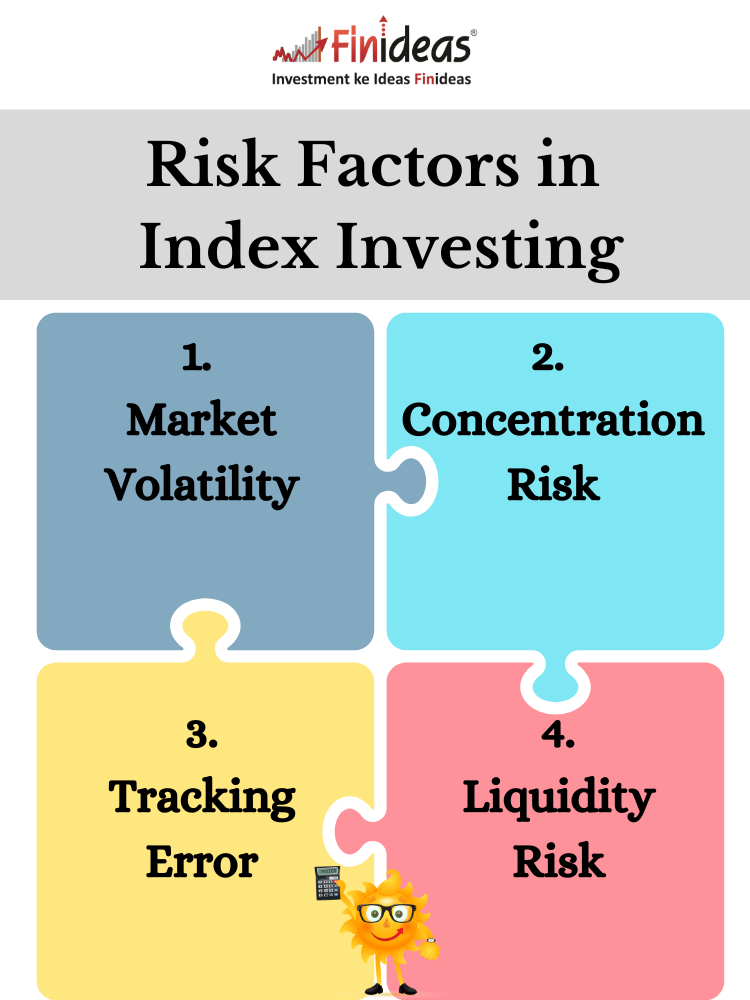Staying Committed to the Long-Term Plan
In recent years, index investing has gained significant traction among Indian investors. The allure of passive investing, coupled with the promise of market returns, has prompted many to adopt this strategy as a cornerstone of their investment portfolios. However, like any investment approach, index investing comes with its own set of risks. In this blog post, we’ll explore the importance of risk management in index investing, particularly in the context of the Indian market, and how staying committed to a long-term plan can help navigate through market volatility.
What is Understanding Index Investing?
Index investing involves building a portfolio that mirrors the performance of a particular market index, such as the Nifty 50 or the Sensex in the case of India. Instead of trying to beat the market by selecting individual stocks, index investors aim to match the returns of the overall market by holding a diversified portfolio of securities that mimic the index.
Risk Factors in Index Investing
While index investing is often considered a relatively low-risk strategy compared to active investing, it’s not without its own set of risks. Some of the key risk factors to consider include:
1. Market Volatility: Fluctuations in the broader market can impact the value of index funds, leading to short-term losses for investors.
2. Concentration Risk: Since index funds track specific market indices, they may be heavily concentrated in certain sectors or industries, exposing investors to sector-specific risks. 

4. Liquidity Risk: In times of market stress, liquidity in the underlying securities of an index fund can dry up, making it difficult to buy or sell shares at desired prices.
Staying Committed to the Long-Term Plan
Despite these risks, index investing can be a powerful wealth-building tool, especially when approached with a long-term perspective. By staying committed to a disciplined investment plan, investors can effectively manage the inherent risks associated with index investing. Here are a few strategies to consider:
- Diversification: Investing in a broad range of index funds can help spread risk across different asset classes and reduce the impact of market volatility on overall portfolio returns.
- Regular Rebalancing: Periodically rebalancing your portfolio to maintain target asset allocations can help mitigate concentration risk and ensure alignment with long-term investment objectives.
- Cost Awareness: Keeping investment costs low by choosing low-cost index funds and minimizing portfolio turnover can enhance returns over time, especially in a competitive market environment like India.
- Emotional Discipline: Avoiding knee-jerk reactions to short-term market movements and staying focused on long-term goals can help prevent costly mistakes driven by fear or greed.
If you are in for a long run then you must know about Index Long Term Strategy.
What steps do you take to manage risk in your index investing journey, especially in the context of the Indian market? Share your strategies and experiences in the comments below!
In conclusion, while index investing offers a simple and cost-effective way to participate in the growth of the Indian economy, it’s essential to recognize and manage the associated risks effectively. By staying committed to a long-term investment plan, maintaining a diversified portfolio, and exercising discipline during periods of market volatility, investors can navigate the ups and downs of the market and achieve their financial goals over time.
Happy Investing!
This article is for education purpose only. Kindly consult with your financial advisor before doing any kind of investment.

